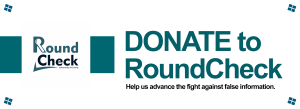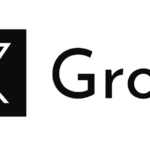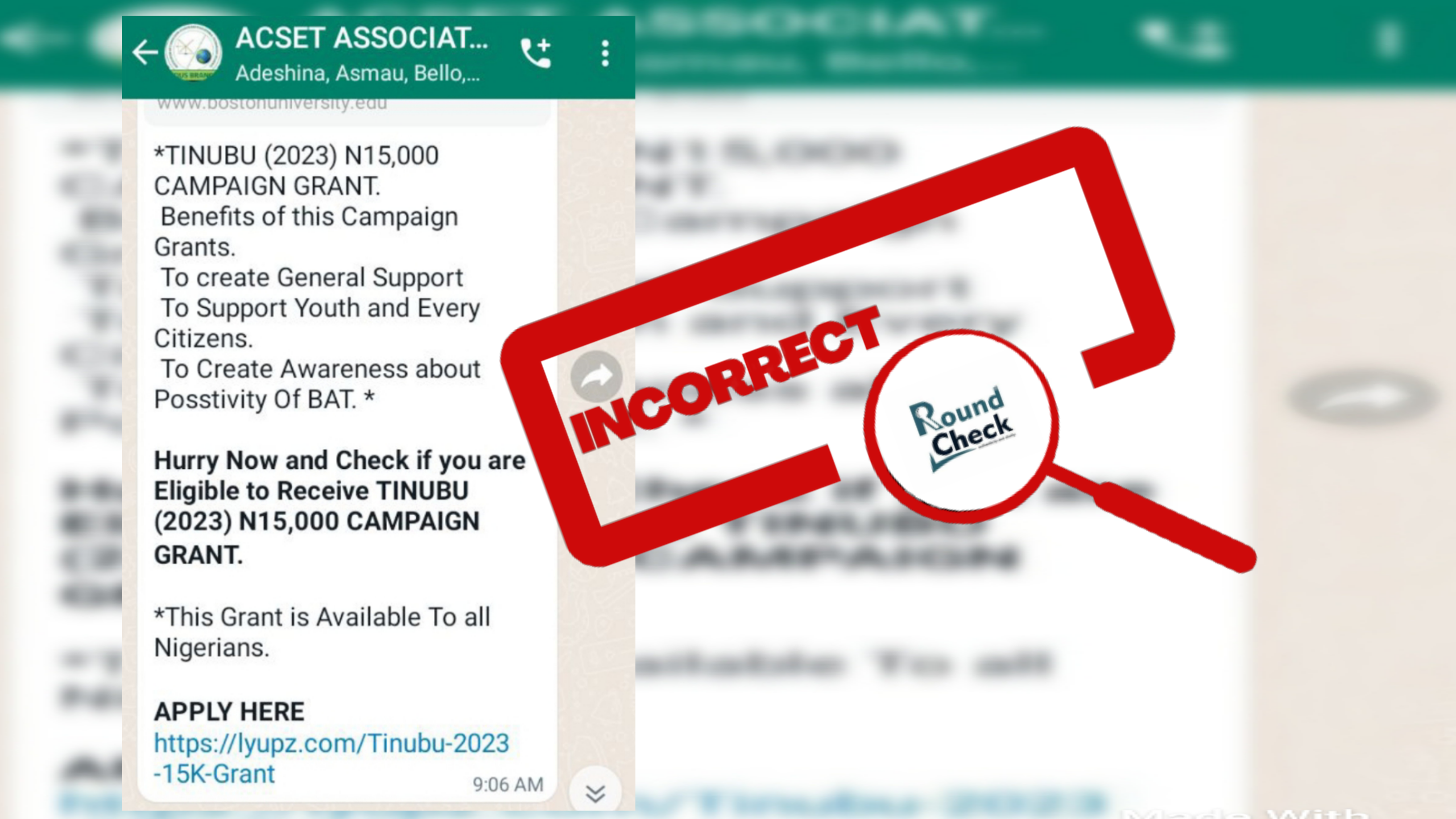|
Getting your Trinity Audio player ready...
|
Despite being the official agency handling the statistical information of the Federal Government of Nigeria, some key information on the Nigeria Data Portal of the Nigeria Bureau of Statistics (NBS) is not updated.
In late August 2022, a fact-checker with FactCheckElection searched for statistics about the geography of a particular state on the NBS website.
He noticed that the data provided on Nigeria Data Portal, an arm of the NBS, contradicted the data available on the state government’s website. Meanwhile, the NBS website provided the link to the various state government’s websites.
After surfing the website of the NBS data portal for a while, the fact-checker observed that some information was obsolete and misleading, hence, he opted for each state government website to search for his data.
For instance, the land area of Lagos State on the NBS website is 3,671.0 sq. km (2006) while on the state website, the territorial land area of the South–Western state is 3,577 sq. km (the equivalent of 51,861 hectares).
This means that the information provided on the NBS website does not correlate with that of the state website.
We checked, compared and observed some misleading public information on the Nigeria Data Portal of NBS because it has not been updated.
What Is NBS?
The Federal Government of Nigeria established an Agency, known as the National Bureau of Statistics (NBS), responsible for collecting, compiling, analyzing, interpreting, publishing, and disseminating statistical information relating to the socio-economic life and conditions of the people of Nigeria.
NBS came into being with the merger of the Federal Office of Statistics (FOS) and the National Data Bank (NDB).
The creation was part of the implementation of the Statistical Master Plan (SMP), a programme document of the Federal Government of Nigeria (FGN) to give the agency a national outlook as the apex statistical agency for all three tiers of Government.
NBS is expected to coordinate Statistical Operations of the National Statistical System in the production of Official Statistics in all the Federal Ministries, Departments, and Agencies (MDAs), State Statistical Agencies (SSAs), and Local Government Councils (LGCs). 
Semiu Adeniran was recently appointed as the substant ive Statistician-General of the Federation and Chief Executive Officer of the NBS.
More On The Establishment Of The NBS
Nigeria operates a Federal System of government with 36 States and Federal Capital Territory and 774 Local Government Areas (LGAs).
At the federal level, each Ministry, Department, and Agency has a Director of Statistics. Each state has a Director of Statistics and a Head of Statistics Unit in Local Government Areas.
All these including Statistical Institutes constitute the Nigeria National Statistical System (NSS). The Internal Organisation of the bureau is built on the Statistics Act of 2007 which is the Legal Instrument established by the Acts of Parliament.
The NBS has offices across the 36 states and in the Federal Capital Territory of the country. It also has zonal offices in Ibadan (South West), Enugu (South East), Calabar (South-South), Kaduna (North West), Jos (North Central), and Maiduguri (North East).
According to its website, there are three schools of statistics in the country. They are located in Ibadan, Enugu and Kaduna states.
Nigeria Data Portal is an arm of the NBS set up as part of the Open Data Policy to enable governments all over the world to leverage the ICT sector to create opportunities for growth, investment, jobs and information sharing.
ROUNDCHECK Findings
On the 29th August, 2022, we thoroughly went through the site of the Nigeria Data Portal and found the different states whose information is not updated.
… profiles of 16 out of 36 state governments are obsolete.
Nigeria is made up of 36 States with each having a state government.
Considering the role of NBS as an apex body saddled with the responsibility of data collation, analysis, interpretation and publication for public use, it is expected that key information is updated from time to time.
However, ROUNDCHECK observed that the profiles of 16 state governments, out of the 36 states, are not up-to-date.
We also observed, without any projection, that some of the state governments are still been governed by a previous governor’s political party, whereas some have had successive administrations by governors from opposition political parties.
The affected states include; Adamawa now governed by Peoples Democratic Party (PDP), Anambra governed by All Progressives Grand Alliance (APGA), PDP in Bauchi and Bayelsa; and APC in Borno, Ekiti, Gombe, Imo, and Kwara.
Adamawa, Yola: On the website of the NBS-arm, the name of the first citizen (the governor) is Bindo Umaru Jibrilla.
Umaru governed the state from 2015 to 2019 under the umbrella of the People’s Democratic Party (PDP).
He was succeeded in 2019 by Ahmadu Umaru Fintiri, a member of the APC, who is currently seeking reelection.
However, while the state government website identifies Fintiri as the governor of Adamawa State, NBS shows Umaru.
Fintiri was formally declared winner of the governorship election on March 29th, 2019.
Anambra, Awka: Although succeeded in 2022 by Charles Soludo, former two-term governor, Willie Obiano’s name still appears on the NBS website. Both are members of APGA.
Obaino ruled the state from 2014-2022. Soludo, identified on the state website as the Governor, was sworn-in on 7th March, 2022.
Bauchi, Bauchi: Muhammed Abdullahi Abubakar of APC served as the state governor until 2019 when he was succeeded by Bala Muhammed of PDP.
Bala Muhammed was sworn-in 29th May, 2019.
Meanwhile, Abubakar is still being referred to as the governor of Bauchi on NBS website while the state website recognizes Muhammed as (current) governor.
Bayelsa, Yenagoa: Henry Dickson served as a two-term governor from 2012 to 2020 before he was succeeded by Douye Diri as the current governor.
But, Dickson’s name on the NBS-arm website is yet to be replaced and updated to that of the current governor, Diri.
The state website on the other hand identifies Diri as governor of Bayelsa. Diri was sworn-in on 14th February, 2020.
Borno, Maiduguri: Kashim Shettima of APC, was the ex-governor of the state who governed from 2011 to 2019. Shettima was succeeded by Babagana Umaru Zulum of the same party on 29th May, 2019.
However, Shettima, who is now a running mate to the presidential candidate of the APC, still appears as the governor of Borno State on the NBS portal.
The up-to-date state government website identifies Zulum as governor. He was sworn-in on 29th May, 2019.
Ekiti, Ado-Ekiti: Peter Ayodele Fayose (PDP) became the governor of Ekiti on 29 May 2003, after defeating the then Niyi Adebayo in the gubernatorial elections. Fayose could not complete his tenure as a result of impeachment on 16 October 2006.
He was later succeeded by Kayode Fayemi of APC in 2018.
The NBS website still displays Fayose’s name as the governor, while the state website had later identified Fayemi (was sworn-in on 16th October, 2018) as governor. But now, a new governor of Ekiti State, Mr. Biodun Oyebanji of APC, was sworn-in on the 16th of October, 2022 to succeed former governor, Fayemi.
Nigeria Data Portal is yet to effect the update.
Gombe, Gombe: Ibrahim Hassan Dankwambo (PDP) served as governor from 2011 to 2019 before Muhammad Inuwa Yahaya (APC) took over till date (2023).
On NBS website, ex-governor Dankwambo is retained as the governor of the state while on the state website, Yahaya is the governor. He was sworn-in on May 29, 2019.
Imo, Owerri: Rochas Anayo Okorocha (APC) served as the governor from 2011 to 2019 before passing the baton to Hope Uzodinma (APC).
However, NBS still identifies Okorocha as the governor while state website identifies Uzodinma as the current governor.
Uzodinma was sworn-in 15th January, 2020.
Kwara, Ilorin: Abdulfatah Ahmed governed the state from 2011 to 2019 and was succeeded by Abdulrahman Abdulrazaq in 2019 till 2023 (year of this report).
While the state website identifies Abdulrazaq as governor, NBS displays ex-governor Ahmed as the governor of the state.
Abdulrazaq was officially sworn-in 29th May, 2019.
In this first part, the names of these former governors’ names are still visible on the NBS website at the time of filing this report while their respective state government profiles have been updated.
Conclusion
While many researchers, international agencies, foreigners and fact-checkers may want to depend on the information provided on the website of Nigeria Data Portal, an arm of the NBS, findings have shown that some of the information available on the website (as analysed above) is not up-to-date.
Also, the NBS posed as the apex hub of statistical information about the Nigerian government and its state governments.
If the NBS can provide a backlink to the websites of the state governments, the Portal should also be adequately updated.
The Nigeria Data Portal needs to be updated to provide researchers with up-to-date information to ensure that the available state governments’ data on its website are accurate and reliable.








